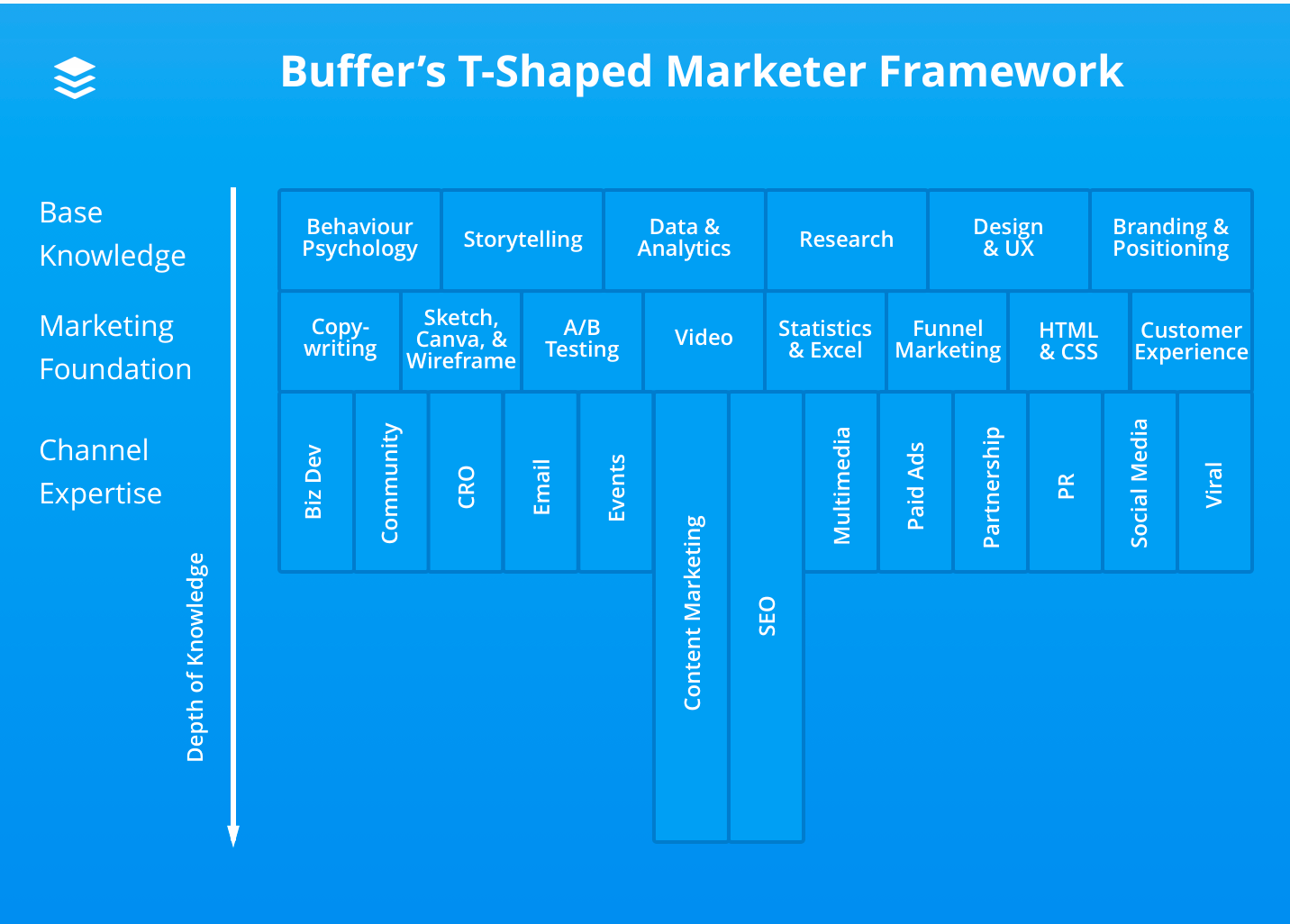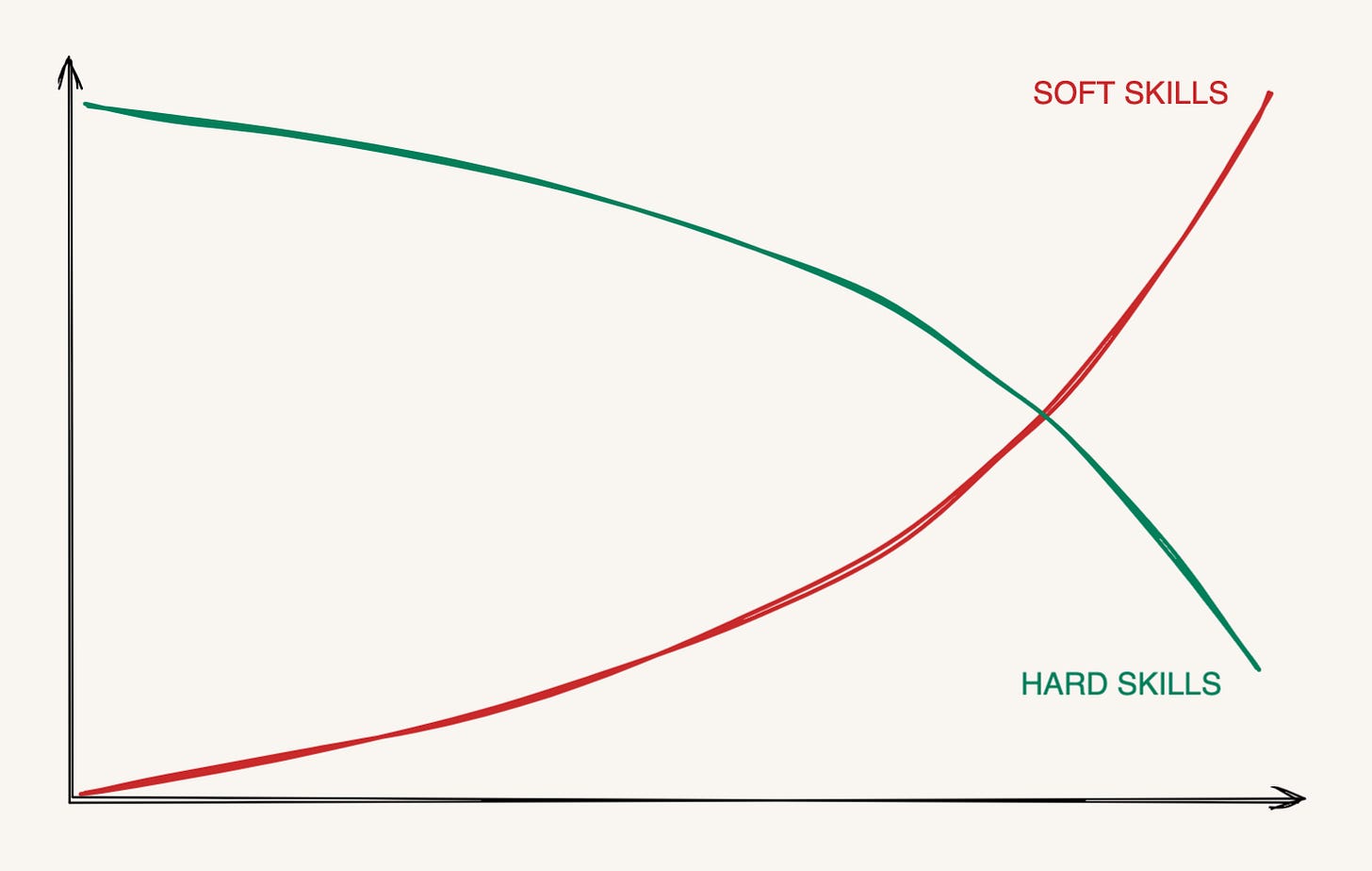Why there are no VP SEO jobs
And how to advance your senior SEO career
This is the SEO MBA newsletter - a free newsletter exploring business, leadership and consulting skills for SEO professionals by me, Tom Critchlow.
I’ve been having a lot of conversations with agency and in-house teams about buying group-discounts for the SEO MBA course so I put together a “1-pager” (it’s 11 pages) with information on the course and group pricing: see the PDF version or the Google Docs version.
Just hit reply if you’re interested in buying the course for your team.
Let’s talk about SEO careers. It’s almost January and we’re in the middle of “the great resignation” so I’m going to write a mini-series on SEO careers. This is part 1!
Today we’re going to look at senior SEO career progression, and I’ll start by telling a story.
A few years ago I was helping a large company re-architect their SEO program. This involved going from a small SEO team (<10 people) to a much larger expanded team (>30 people across product, SEO & content).
I sketched out a proposed org chart for the new program, with a VP SEO at the top:
Let’s be clear here: this situation is extremely rare. In my experience, for a senior SEO leader to directly oversee product and editorial (to have dedicated teams and maintain their own roadmap vs contributing to other teams) almost never happens.
So I was kind of pleased that I was able to help this organization build what I thought was the right setup. To give the SEO program the best chance to succeed by giving them dedicated resources.
But then a funny thing happened.
After I hired the VP SEO role, shortly afterwards their job title became “VP SEO & product growth” and then simply became “VP Product”.
What happened to that VP SEO role?
Here’s the thing - this team was designed to be essentially responsible for the whole front end experience of the site. And once you have complete responsibility for the front end experience - you need to care about things that aren’t directly SEO.
Conversion rate?
Rolling out a redesign?
Creating content for social campaigns?
Building landing pages for paid media?
You can see how this “ideal” org chart with a VP SEO role at the top naturally and directly leads to expanding the role and team beyond pure SEO. Because of SEO’s cross-functional nature you can’t ring-fence SEO very easily and so the leader of the group naturally becomes a VP-something-other-than-SEO….
If you look at the market, aside from a handful of VP SEO roles at big agencies, there are virtually zero VP SEO roles.
Senior SEO careers need to escape SEO tribalism
The key idea here is that there are no VP-level SEO roles and this isn’t a market failure but rather by design. Ok, so where to for a senior SEO career? After all, an SEO director salary is $101k and a VP marketing is $250k1.
One path is into marketing, as Martijn Scheijbeler writes in his post what’s next after SEO?:
Many (top) industry experts have climbed the career ladder on either the agency or in-house side and are at the top of their field. When I left Postmates, I knew that I didn’t want to go back into yet another SEO role, though. For me, the diversity of additional acquisition channels and marketing functions was more interesting than diving into another SEO playbook.
There’s this fundamental idea that SEO cuts across traditional disciplines - we create content but aren’t necessarily responsible for all content. We create new user experiences but aren’t necessarily responsible for customer experience. SEO is a hybrid role across product, engineering, UX, content, marketing and analytics. And as a hybrid role it doesn’t have a clearly defined C-suite or VP-level representation.
This problem isn’t unique to SEO however! I love this post exploring senior pathways for UX-research professionals by Andrea Lewis - Research Can Lead: A look at UX Research career progression:
To make a real impact, to evolve as a discipline, to start this action of elevating UXR to true leadership roles — we must leave the UXR tribe. We love our craft so this must be tough to read, but we must move ahead with no fear or hesitation. Many of us were doing other roles before UXR.
And:
Let’s flood the leadership job market with UXR leader CVs and resumes.
Flood it, and let your UXR talent rain down like Manna from the heavens. Let’s unleash our UXR goodness on the world. See a VP Design role? Yup, hit apply. Is that a Head of UX job? Then tick. Thinking about that Chief Design Officer role? Hell yeah, go for it!
For any recruiters in the audience, if my advice to UXR leaders shocks you then I must ask, why not UXR leaders for those roles? UXR leaders are the evidence and knowledge holders in organisations.
There’s no VP-UX and there’s no VP-SEO, so adapt your career expectations accordingly but also just f-ing doing it and reach for those senior roles. There’s no reason a senior SEO professional can’t take a VP Marketing role or a VP Product role. It’s been done. You can do it.
But it requires “leaving the tribe” as Andrea says.
Think about it this way - if you’re an engineer working on testing, it’s obvious that there’s no VP-testing career path, but equally it’s obvious that you’re on a pathway to VP product one day. Testing sits inside the product org and there’s both VP Product and Chief Product Officer roles.
But if you ask someone who works on the testing team whether they’re a “testing professional” or a “software engineer” they are most likely to say the latter.
Holding too tightly to a label like SEO can hold you back. Tribalism limits your potential assimilation.
Would you rather be “an SEO” or “responsible for business outcomes” because this is ultimately where the line gets drawn. There’s no reason you can’t lead a product team as an SEO but you can’t do it with SEO in your job title!
Explicit Skills Progression
The key here is to formally recognize that to land a VP Product or VP Marketing role you’re going to need a wide range of skills in that area. You don’t need to be an expert in product or marketing (you can offset some of that with your SEO experience) but you will need to be capable enough to manage teams and budgets.
So you should be explicit with the skillsets that you need to learn.
If you’re aiming for a VP Product role:
How do product teams organize?
What are the various sub-disciplines of product work?
How do product teams ship work?
How do you set goals and roadmaps for product teams?
What is the language and culture of product teams?
This great diagram from A Visual Vocabulary for Product Building shows the range and categories of expertise:
If you’re aiming for a VP Marketing role:
What are all the channels available?
How do you build attribution?
How does branding and positioning work?
How do marketing teams organize?
How do marketing teams ship work?
How to build a marketing plan and roadmap?
This visual from buffer outlines the range of expertise:
(Note how both of these diagrams contain SEO as a sub-discipline? That’s by design, SEO is a valid component of either path…)
Becoming an executive requires… executive presence!
Ok, I didn’t intend to write this whole post as an ad for the SEO MBA course - but I’d be remiss if I didn’t talk about it. There’s a key gap that happens somewhere around the director -> VP transition where the emphasis flips between “soft” skills and “hard” skills
Suddenly the most important skills are things like:
Communication
Vision and opinion
Presence
Leadership
Caring about business units not business functions
This is explicitly and directly the focus of the SEO MBA course - to help senior level SEOs accelerate their careers and focus on these softer skills that become crucially important the higher up inside an organization you go.
I enjoyed this post too - outlining the specific shifts that happen as part of the director → VP transition. 4 keys to move from director to VP level:
The biggest difference between the VP and Director level is the scope of responsibility and the complexity that comes with it. At the VP level, you typically manage multiple teams with priorities that are often not totally aligned. This dynamic makes everything harder … messier. It becomes less obvious how to make decisions. More often than not, you find yourself choosing between several suboptimal paths – nothing is clean. It feels like you can’t make a decision to favor one thing without hurting another. There are always many different perspectives to consider, instead of just a few. You aren’t just leading a team any more, you’re leading on behalf of the company. The stakes seem higher and your impact - positive and negative - seems so much more poignant.
To be ready for the Vice President level you need all of the skills you needed at the Director level plus a new level of strength, conviction and perspective.
Go be VP of something
Ok so to wrapup - you should feel empowered to go be VP of…. something! But it’s not going to be VP SEO.
VP product, VP marketing, VP growth, VP content - these are all viable pathways but they also require some deliberate career maneuvering. To gain the broad base of experience, knowledge and language required to make that leap you’ll need to deliberately seek exposure to those teams and their ways of working.
SEO Director salary and VP marketing salary via salary.com







